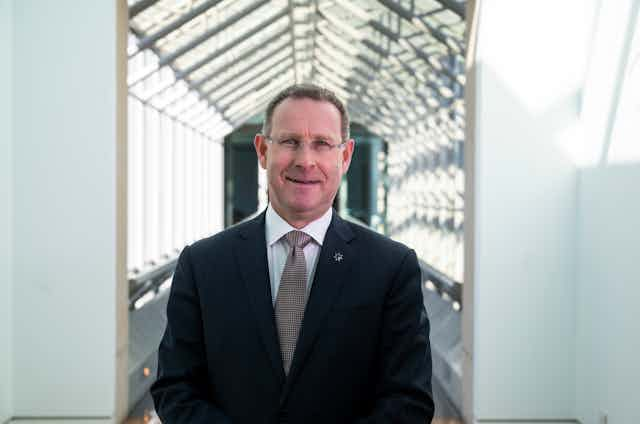Australia’s inflation moderated somewhat this week. But in economic terms, there will be more tough months ahead for households and for businesses.
Meanwhile, the relationship between business and the Albanese government is somewhat scratchy. From the point of view of business, the Government is delivering to the unions. Business is particularly critical of the Government’s industrial relations changes those already made and those to come.
In this weeks podcast, our guest is Andrew McKellar, the chief executive of the Australian Chamber of Commerce and Industry (ACCI). He joins us to give a business take on the economy, issues concerning business and relations with the Albanese Government.
ACCI describes itself as Australia’s largest and most representative business network, saying it covers businesses “of all shapes and sizes”.
With the news that Australia is finally seeing inflation fall, McKellar believes that further interest rate rises could do more harm to the economy than good.
it’s not clear that further interest rate increases at this point in time are really going to help. In fact, they could risk going the other way.
This week workplace relations minister Tony Burke announced new changes to casual employment laws, to make it easier for casuals to become permanent employees. Business has reacted sharply. McKellar says:
Firstly, there is already a pathway for conversion from casual to permanent employment, if that’s what suits the employee and what suits the business. We think there is an issue around the change in the test to that, and particularly the uncertainty that that can create for smaller businesses.
So whether it be on labour hire, service, contracting, the ability for companies, for employers to engage labour in those circumstances […] There’s a broad range of concerns that business has and we’re obviously trying to work through those issues with government behind the scenes.
Treasurer Jim Chalmers announced the new head of the Productivity Commission this week, appointing Chris Barrett from the Victorian Department of Finance and Treasury to the role. Australia’s productivity growth per annum is at its worst in 60 years, and McKellar believes Barrett has a mammoth task ahead of him:
I think we’ve seen a period where there hasn’t been a strong reform agenda. This government has to make a choice. It can make a difference. When you look back at some of the positive things that have been done by governments of either persuasion in the past, whether it be Hawke and Keating, whether it be Howard and Costello, then I think having that strong impartial advice, looking at taking on some of those challenges, making some unpopular decisions at times, but trying to build a consensus around what will drive productivity growth [and] that’s sorely needed in Australian public policy.
With the sweeping industrial relations changes being implemented by the government, McKellar says business, big and small, needs to be measured:
We don’t want to diminish our credibility as business advocates by ‘overegging the omelette’ - and we’ve got to be careful on that point.
But where we see risks and where we see things that are taking us potentially in the wrong direction on policy, then I think it’s quite legitimate to have that debate in a pretty robust way, and I don’t think anyone’s shying away from that.

